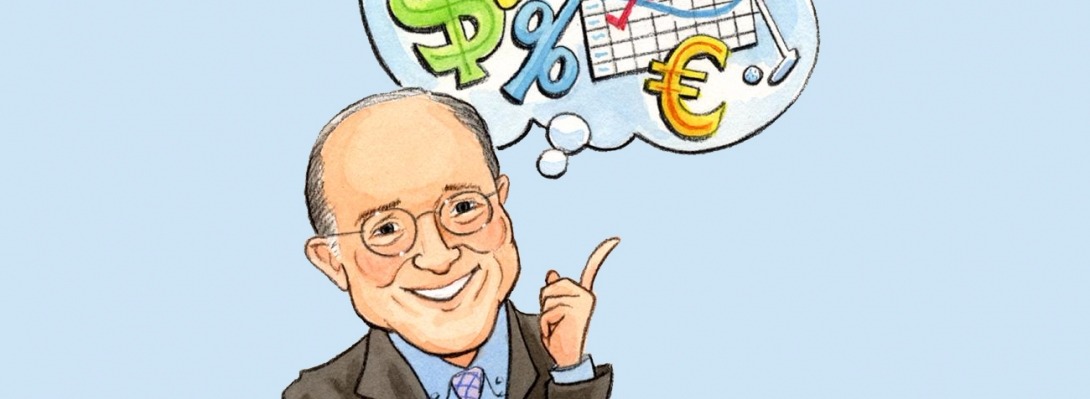March 20, 2023
By now you know that the run on Silicon Valley Bank (SVB), and and the bank’s widely-reported inability to pay back its depositors, was followed by well-reported problems with other lending institutions. The run of bad news has led many laypersons (and depositors in thousands of local and regional banks) to worry that the global banking system is unsafe.
To recap: SVB Financial Group, the parent of SBV, filed for bankruptcy protection a week after the bank was taken over by the California Department of Financial Protection. Its management team had made unwise investments in long-term Treasury securities that lost much of their value due to rapidly-rising interest rates, causing a number of tech companies to lose confidence in the institution’s viability. The result was a classic run on the bank by tech firms that had parked enormous deposits.
Following the SVB default, New York’s Signature Bank was closed by New York state regulators to prevent a similar run on its assets, but the problems there seem to have been very different. Signature had been a significant player in the cryptocurrency world, the first FDIC-insured bank to launch a block-chain based digital payment platform. Depositors were apparently worried that the bank had invested their money in dodgy digital assets.
The good news is that the Federal Deposit Insurance Corporation stepped in and fully protected all depositors in both SVB and Signature. These interventions have been loosely described as bailouts, but in fact, the FDIC took over the lenders and plans to sell them to outside (as yet unnamed) buyers. Taxpayers will not be on the hook for the promised full repayment of deposits both below and above the $250,000-per-account government guarantee. Shareholders of the two banks stand to lose all of their share value, as the government will use the sales proceeds to make the depositors whole. That is not the definition of a bailout, where the management team and stockholders would have been prioritized over the depositors.
In the case of SVB, the buyer will inherit roughly $2.2 billion worth of tangible assets, but will have to take on $3.3 billion in outstanding debt. Meanwhile, the UK arm of the bank has reportedly already been sold to HSBC Corporation in London. Signature reportedly has more on the balance sheet than depositor liabilities, and its executives have said that the bank has never actually invested directly in digital assets.
In the aftermath of the two headline-grabbing seizures, various federal agencies involved in the banking industry have gone out of their way to reassure the public that their lending institutions are still safe and sound—not always successfully, because the measures that have been announced are somewhat wonky and complicated. Ripple effects are being felt at Zions Bank in Salt Lake City and First Republic Bank, both of which experienced stock price declines and depositor withdrawals. Credit Suisse, based in Switzerland but with significant business interests in the U.S., saw its share price drop 30% after panicked borrowers started pulling their deposits out on news of SVB’s troubles.
The simplest reassurance for depositors is that there is still $100 billion in the FDIC’s Deposit Insurance Fund, which provides an iron-clad guarantee to let people recover up to $250,000 per consumer account no matter what happens to the bank. The U.S. Federal Reserve has gone further, creating a new Bank Term Funding Program which will make virtually unlimited one-year loans available to other financial institutions should they experience a run on their assets. Some of those funds will come from the Exchange Stabilization Fund, which has $25 billion on reserve.
Even if other banks start to teeter, they will have access to funds that would fully pay off their depositors.
Credit Suisse’s safety and soundness was restored when the Swiss National Bank loaned the company $53.7 billion, and the Swiss government basically told the world that it will do whatever it takes to make sure one of its leading companies is protected from insolvency.
And there is evidence that the banking industry will protect its own if necessary. First Republic was able to immediately pull in a total of $30 billion in new deposits from eleven large U.S. banks, including Bank of America, Citigroup, JPMorgan Chase, Wells Fargo, Goldman Sachs and Morgan Stanley. This suggested that the bank is actually on solid footing; those large institutions are not known for making charity investments.
Will all of this restore the eroding confidence in the banking system? Maybe, maybe not. But the real question is whether many banks around the country will fail and take the money deposited by thousands or millions of ordinary Americans with them—something the country hasn’t experienced since the systemic banking collapse that the U.S. experienced during the Great Depression.
The answer to that seems to be a definitive ‘no.’
Sincerely,
Edward J. Kohlhepp, Jr., CFP®, MBA
President
Edward J. Kohlhepp, CFP®, ChFC, CLU, CPC
Founder & CEO
Sources:
https://www.fdic.gov/news/press-releases/2023/pr23019.html
\https://www.nytimes.com/2023/03/17/business/svb-silicon-valley-bank-bankruptcy.html
https://www.cnbc.com/2023/03/12/regulators-close-new-yorks-signature-bank-citing-systemic-risk.html
https://www.cnn.com/2023/03/15/investing/credit-suisse-shares-saudi-national-bank/index.html
This material was prepared by BobVeres.com and does not necessarily represent the views of the presenting party, nor their affiliates. This information has been derived from sources believed to be accurate. Please note - investing involves risk, and past performance is no guarantee of future results. The publisher is not engaged in rendering legal, accounting or other professional services. If assistance is needed, the reader is advised to engage the services of a competent professional. This information should not be construed as investment, tax or legal advice and may not be relied on for the purpose of avoiding any Federal tax penalty. This is neither a solicitation nor recommendation to purchase or sell any investment or insurance product or service, and should not be relied upon as such. All indices are unmanaged and are not illustrative of any particular investment.




